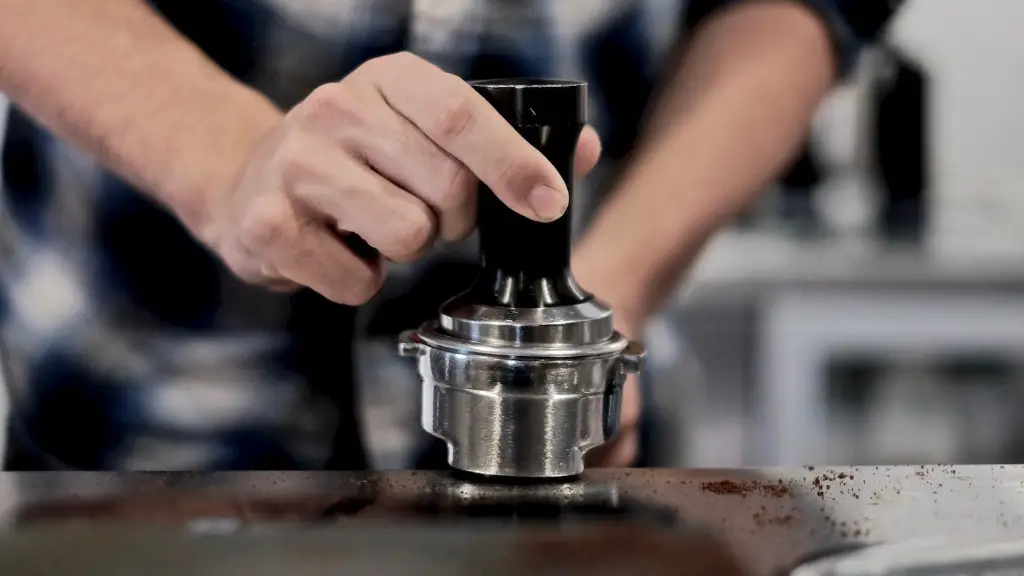There is no denying that black coffee has become an increasingly popular drink in recent years. The beverage has been credited for many health benefits, including helping with weight loss. But many have been left wondering, just how often should you drink black coffee for weight loss?
Recent studies have found that coffee, when consumed responsibly, can be beneficial to helping with weight loss. In particular, black coffee has become a popular choice among those looking to shed a few pounds. This is because the drink is low in calories and while it may not be everyone’s cup of tea (pun intended), it is packed with antioxidants, vitamins and minerals.
Nutritionists have suggested that a cup of black coffee per day is enough to aid with weight loss. But as with any dietary change, check with your doctor first before making drastic changes to your daily routine.
A key component to unlocking the health benefits of coffee, including possibly weight loss, is to maintain good quality and quantity. With that said, it is important to note that too much of a good thing can be a bad thing.
While it is suggested that a cup of black coffee each day should be enough to help with weight loss, those looking to obtain optimal results should go for organic, high-quality coffee. This is important as the quality of the coffee beans used can drastically affect the taste, aroma, and quality of the drink.
Also, when drinking black coffee for weight loss, it is important to keep sugar consumption to a minimum. Added sugar can lead to an excess of calories which will halt any weight loss goals. As an alternative, try adding some cinnamon or a low-calorie sweetener if you need to sweeten the coffee.
In order to obtain the best result when drinking black coffee for weight loss, be sure to pair it with a nutritious diet and exercise. This will give you the best chance of obtaining a healthy, sustainable weight loss.
Replacing Meals with Coffee
Replacing meals with coffee is never recommended. Recent studies have suggested that replacing meals with liquid calories such as coffee, can lead to an overall decrease in the number of calories being consumed throughout the day. This can contribute to weight gain.
With that said, it should be noted that many nutritionists suggest having a cup of black coffee an hour or so before meals to help reduce hunger. This is because certain compounds in coffee can temporarily suppress the appetite which can help to regulate the amount of food eaten.
Moreover, when using coffee as an appetite suppressant before meals, refrain from adding milk, cream, or sugar. Milk and cream contain fat, some of which can cause more harm than good when it comes to weight gain. As for sugar, it can counteract any appetite suppression efficiency and result in more calories being consumed.
In conclusion, black coffee should be consumed with caution. Too much of it can lead to unhealthy habits, such as relying on caffeine to replace meals, resulting in potential weight gain. As such, moderation is key — one cup of black coffee per day should be enough to help with weight loss.
Watching Your Caffeine Intake
Due to the presence of caffeine, it is important to be mindful of how much coffee you are drinking. Caffeine can be a great pick-me-up, but when consumed in too large of a quantity can lead to restlessness, anxiety, and insomnia.
So if you are thinking of incorporating more coffee into your daily routine, it is worth noting how it affects your energy levels. This will help you be in better control of your caffeine consumption and prevent any adverse effects.
Moreover, it is recommended to limit the amount of caffeine you may consume during the night-time. Caffeine consumed at night could result in an interruption with the amount of rest you can get since the body needs to rid itself of caffeine before it can naturally relax.
When taken responsibly, coffee can be a great tool to help with weight loss. But it is important to note that like any lifestyle change, moderation is key to ensure the best results.
Consuming Coffee in Moderation
Consuming coffee in moderation is highly recommended. Research has suggested that those who consume too much coffee, can be at increased risk of health issues, including heart problems, high blood pressure, and headaches.
Moreover, it is important to note that caffeine is a stimulant and can interfere with certain medications. As such, it is advised to consult your physician first before adding any coffees or teas to your daily diet.
If you are worried about consuming too much coffee, consider adding decaffeinated coffee to your daily routine. Decaffeinated coffee still contains some caffeine, however, it has much less than regular coffee.
In addition, some of the chemical processes used to remove the caffeine from coffee could also strip away some of the drink’s health benefits. So if you are weight loss is your main goal, it is best to stick to small, regular doses of regular, unprocessed coffee.
Combining Coffee with Exercise
It is a known fact that exercise is an important factor to consider when trying to lose weight. But it may surprise you to know that coffee can be a great addition to your exercise routine.
Coffee not only contains antioxidants and healthy fats, which can help your body move and recover, it also known to help improve its performance in aerobic exercises. Research has suggested that coffee can help increase speed and endurance, thus helping those looking to lose weight.
Moreover, coffee is known to contain certain compounds that can reduce fatigue and make your exercise session seem easier. This encourages more sustained and better training sessions, leading to better results.
Ultimately, it is important to note that as with anything, exercise is best when done responsibly. Over-exerting yourself could lead to injuries, putting a temporary halt to your progress. So take your time and exercise accordingly.
Using Coffee as a Pre-Workout
Coffee is often consumed as a pre-workout to get a boost before heading to the gym. In fact, research has suggested that drinking caffeine before exercising can help to maximize your performance, improve coordination, and reduce perceived effort — all of which could contribute to better results when used responsibly.
In addition, caffeine releases fatty acids which are stored in our fat cells. Once released, these can be used by our body as fuel, allowing us to do more exercises for longer. Not bad, eh?
When using coffee as a pre-workout, nutritionists recommend sticking to one cup per day. This is because more than that can result in jitters, anxiety, and other adverse effects.
Furthermore, if you are looking to get the most out of your caffeine consumption, consider drinking the coffee 45 minutes or so before the start of your workout routine. This will allow the caffeine to fully kick in, thus optimizing its effects on your body.
Finding Time to Exercise
Finding time to exercise can be a major challenge for many of us. This is especially important when trying to lose weight. But what many of us don’t realize is there are ways we can squeeze in more activity without too much effort.
Studies have suggested that breaking up daily tasks into smaller chunks can help those who are struggling to find time to exercise. This could include doing chores, running errands, and even taking a quick walk during lunchtime.
In addition, consider carving out 10-15 minutes each day for some light exercises. This doesn’t need to be anything overly strenuous — several minutes of stretching, jumping jacks, and bodyweight exercises can get our heart rate up and contribute to some overall weight loss.
Furthermore, combining the aforementioned tips, coffee can be the perfect way to help boost performance when performing these exercises. This can help squeeze in some additional calories burned. As a result, you may very well find yourself achieving your weight loss goals faster.





